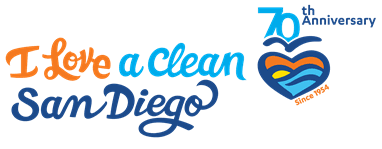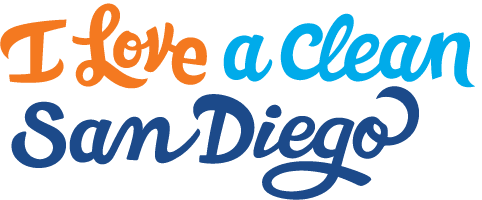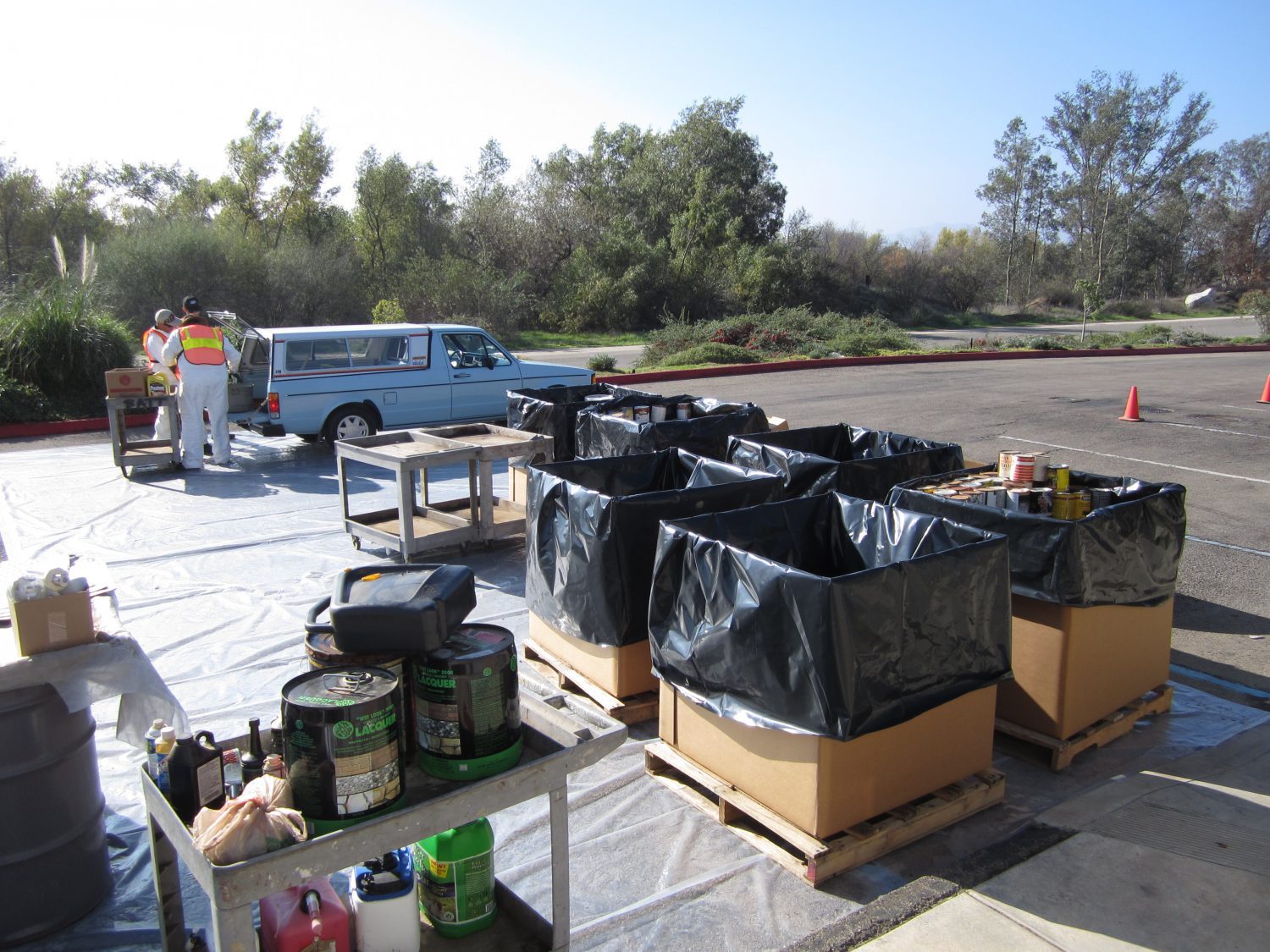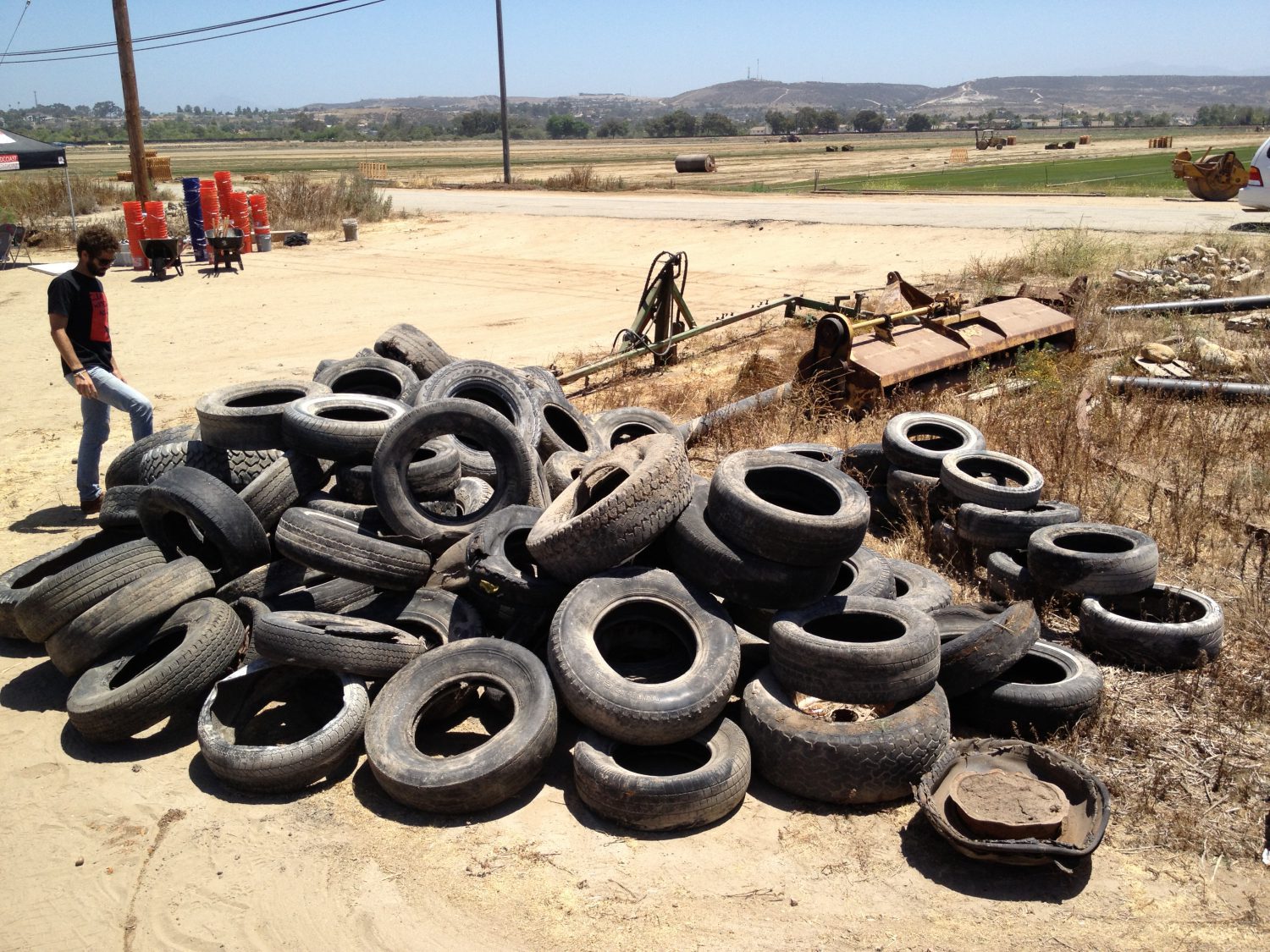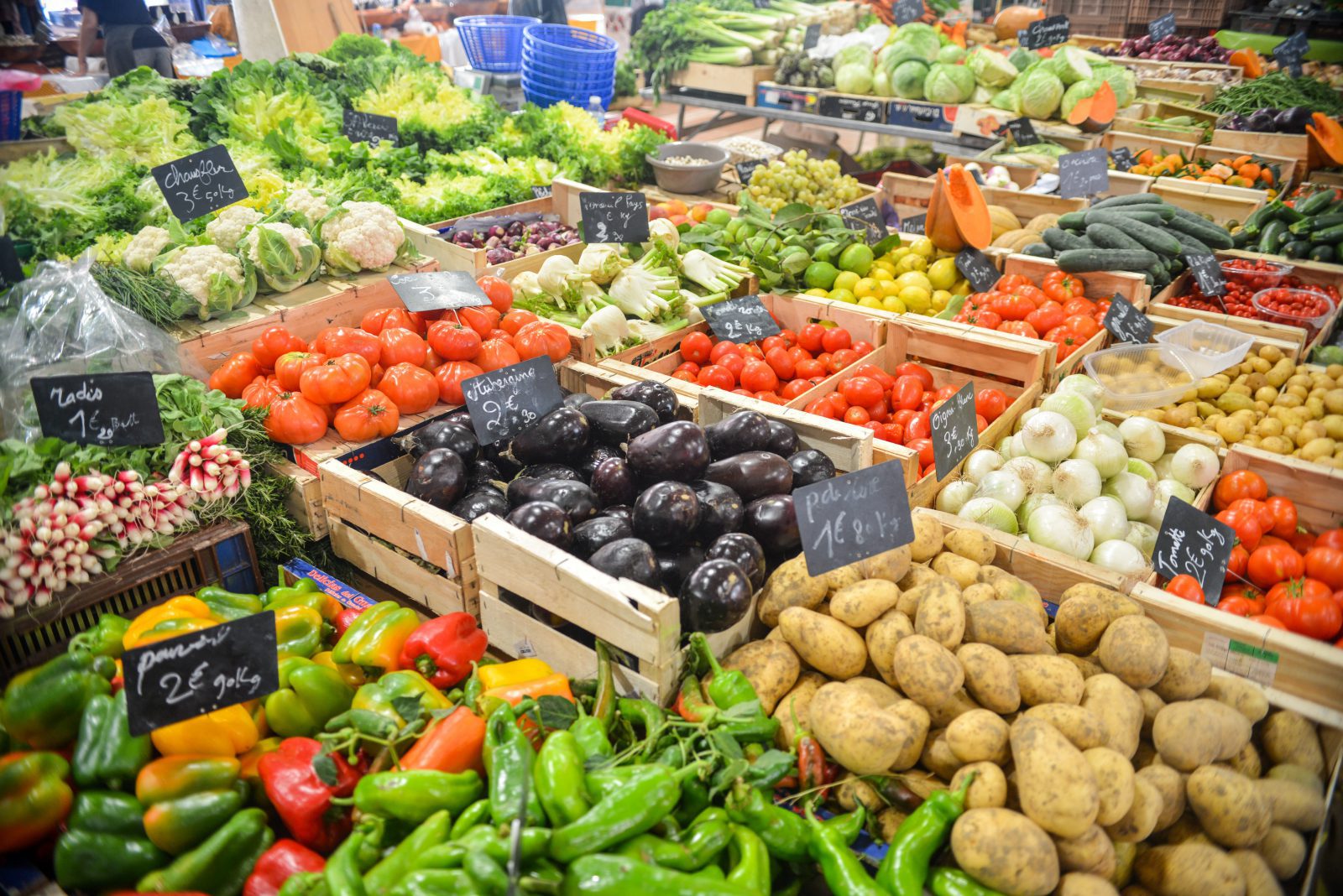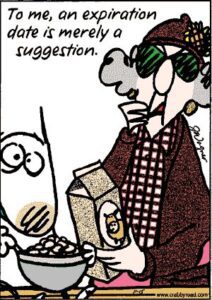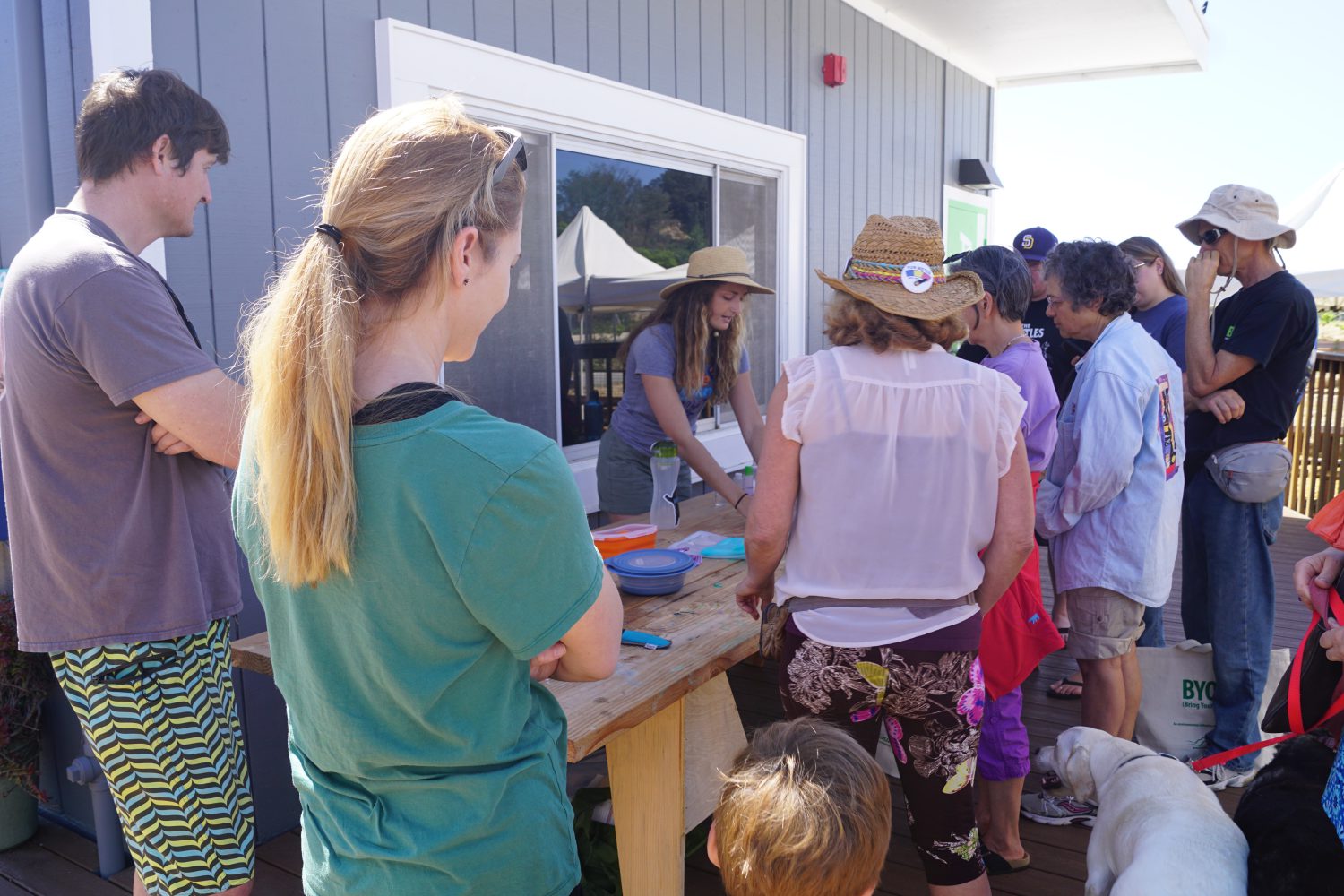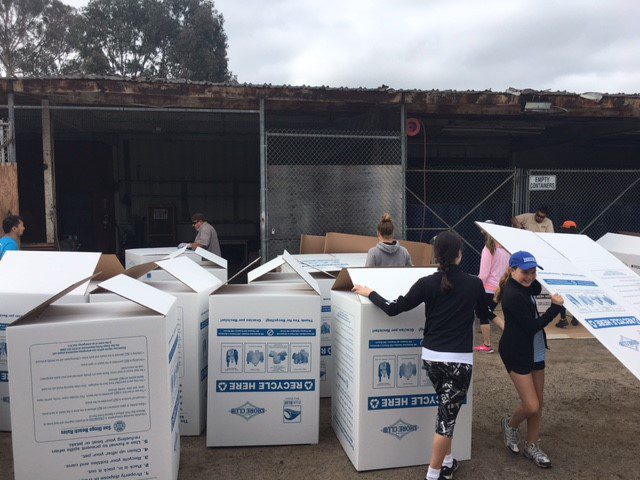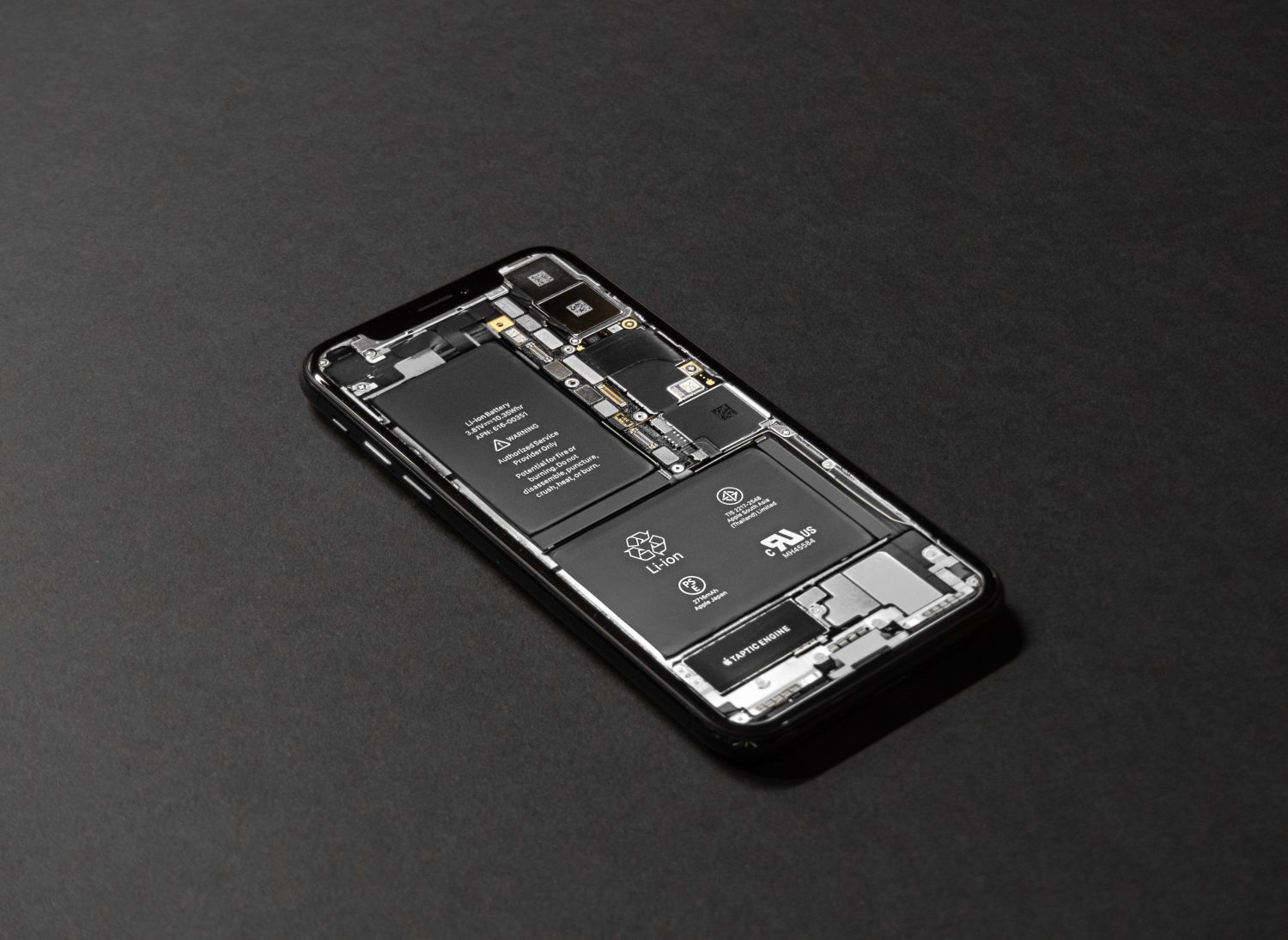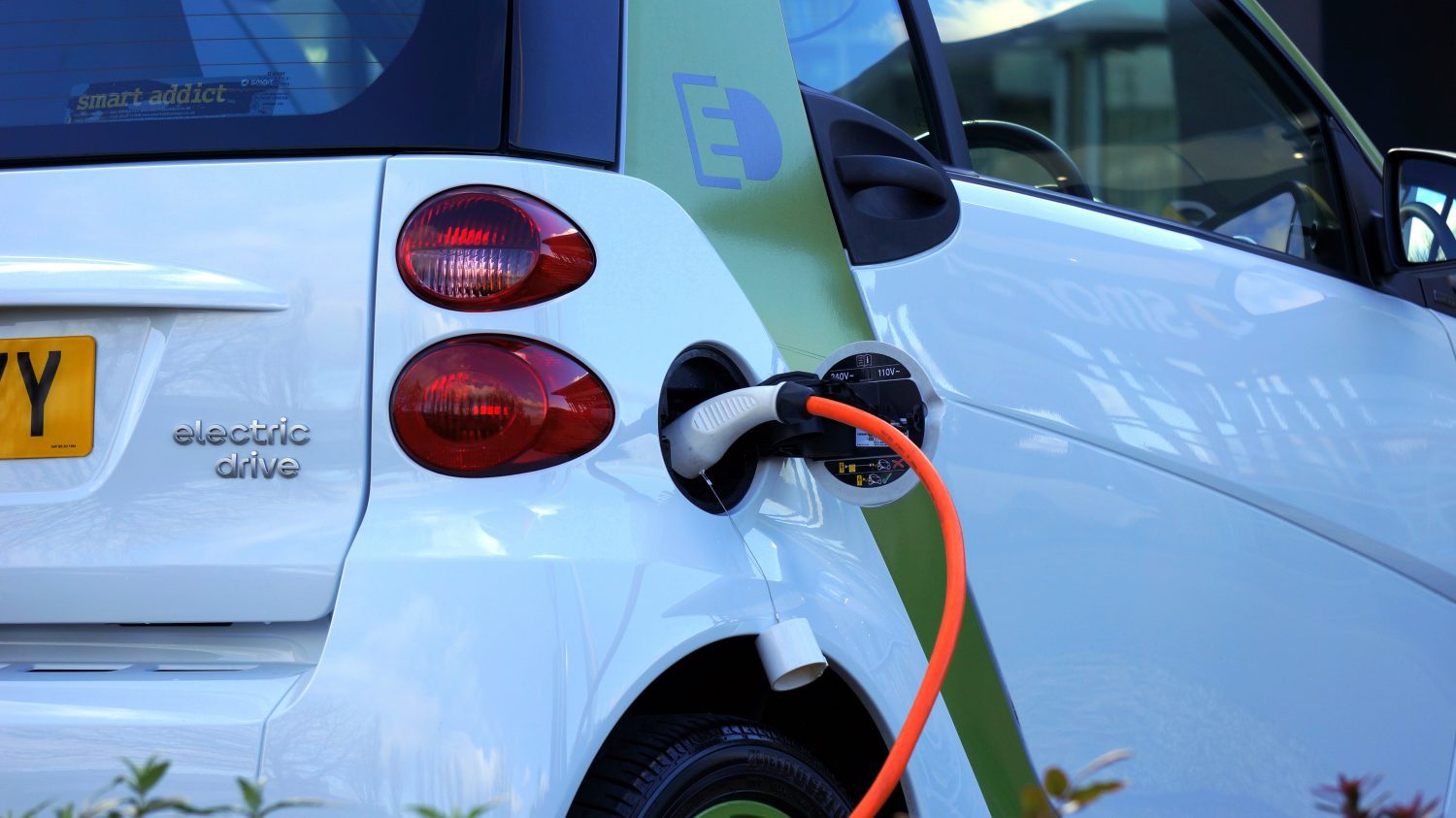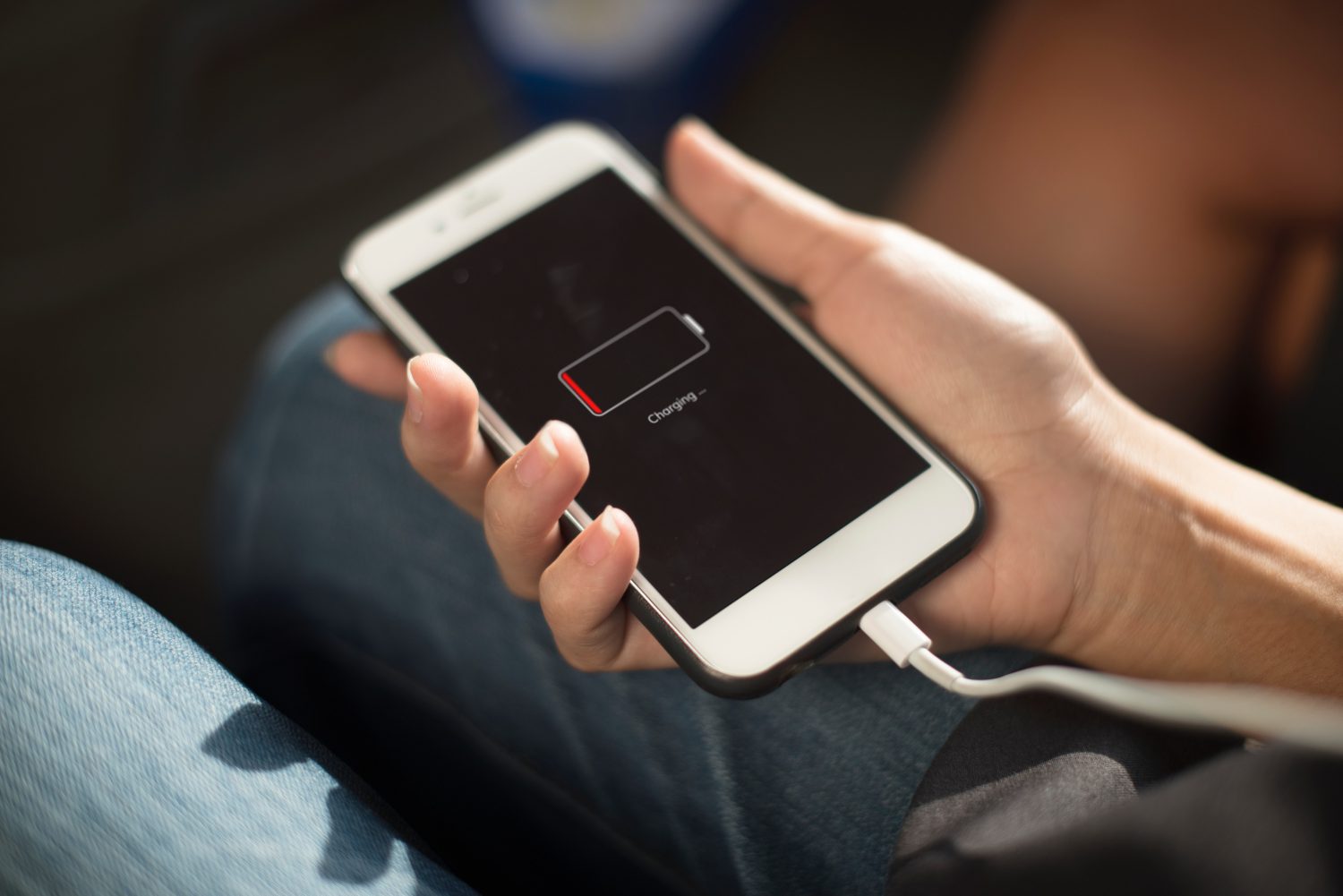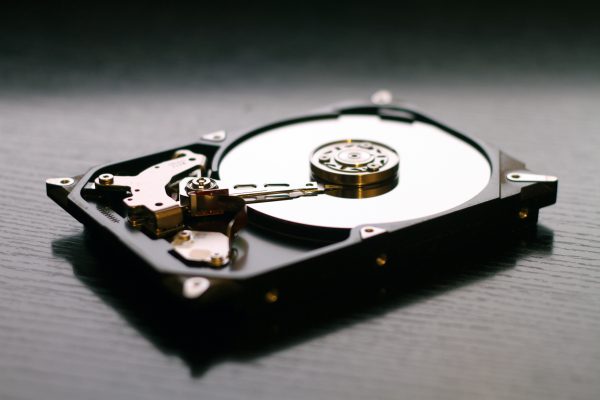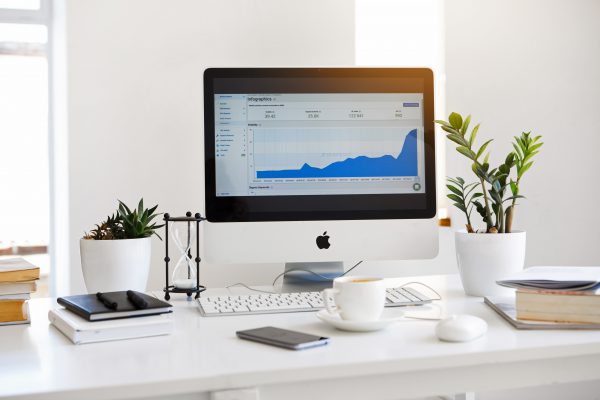San Diego County’s Department of Environmental Health, with funding from a CalRecycle grant, is holding a FREE household hazardous waste and electronic waste collection event at Julian Library parking lot located at 1850 Highway 78, Julian, CA 92036 on Saturday, November 17, 2018, from 9:00 AM – 2:00 PM. This event is open to all residents living in unincorporated parts of the county.
HOUSEHOLD HAZARDOUS WASTE is unused or leftover portions of products containing toxic chemicals used to maintain your residence. Products labeled Caution, Warning, Danger, Poison, Toxic, Flammable or Corrosive are considered hazardous.
HOUSEHOLD HAZARDOUS WASTE INCLUDES:
- AEROSOLS
- ALL PURPOSE CLEANERS
- ANTIFREEZE
- AUTO BATTERIES
- AUTO FLUIDS
- DISINFECTANTS
- GASOLINE (w/container)
- LIGHTER FLUID
- USED OIL/OIL FILTERS
- LATEX / OIL-BASED PAINT
- PESTICIDES
- POOL CHEMICALS
- SOLVENTS
EMPTY CONTAINERS: Empty containers can go into the trash or be recycled.
ELECTRONIC WASTE INCLUDES:
- COMPUTER/T.V. MONITORS
- CELLULAR & CORDLESS PHONES
- CENTRAL PROCESSING UNITS (CPUs)
- PRINTERS AND SCANNERS
- STEREO EQUIPMENT
- VCRs AND DVD PLAYERS
- FAX MACHINES
- MISC. COMPUTER COMPONENTS
- FLUORESCENT LIGHT BULBS
- COMMON BATTERIES (AA, AAA, C, D, AND BUTTON)
Transportation Requirements:
Leave products in the existing container, if possible. Make sure lids are on tight so containers will not leak. Transport containers in the trunk or in the back of the vehicle away from passengers and pets. Do not transport over 15 gallons or 125 pounds at one time. Containers used for transport must be no larger than a 5-gallon bucket. Please tape ends of household batteries.
PLEASE NOTE: Five (5) televisions or computer monitors (CRT) per car will be accepted, in addition to household hazardous, electronic and universal waste.
Home-generated “sharps” including syringes and lancets will be collected during this event. Please transport in closed rigid containers.
Not Accepted:
- Tires
- Business waste
- Ammunition
- Explosive and radioactive material
- Medications
- Air conditioners
- Large appliances
For more information, call 1-877-R-1-EARTH (1-877-713-2784).
Note: This is NOT a volunteer opportunity.
